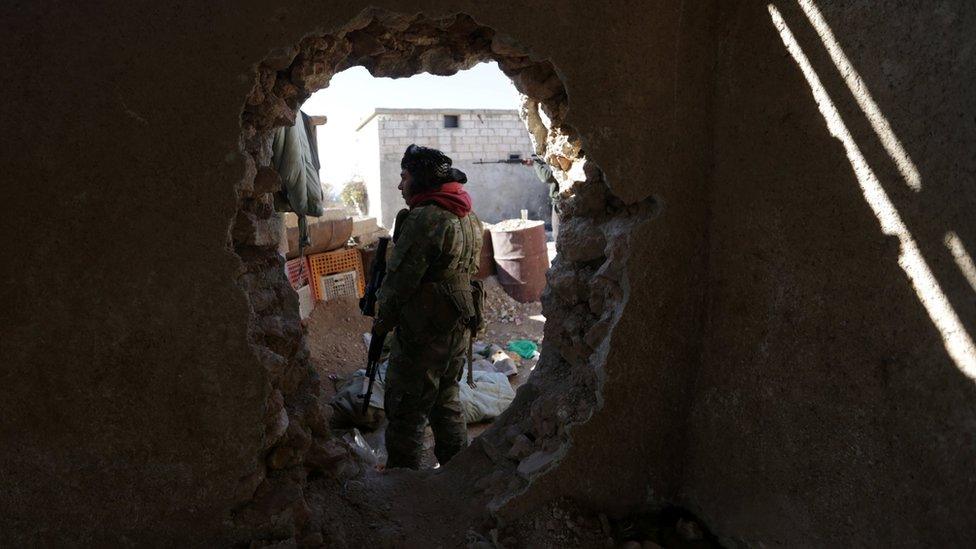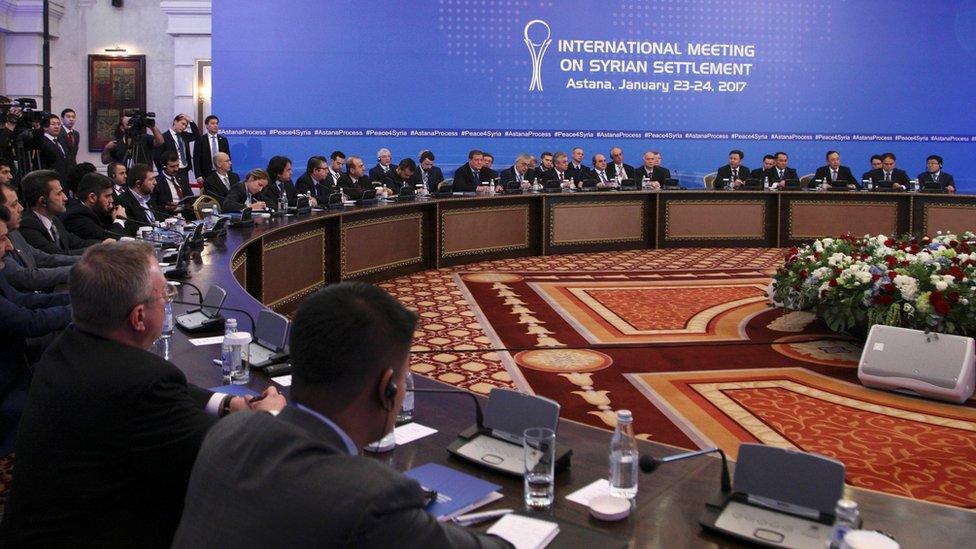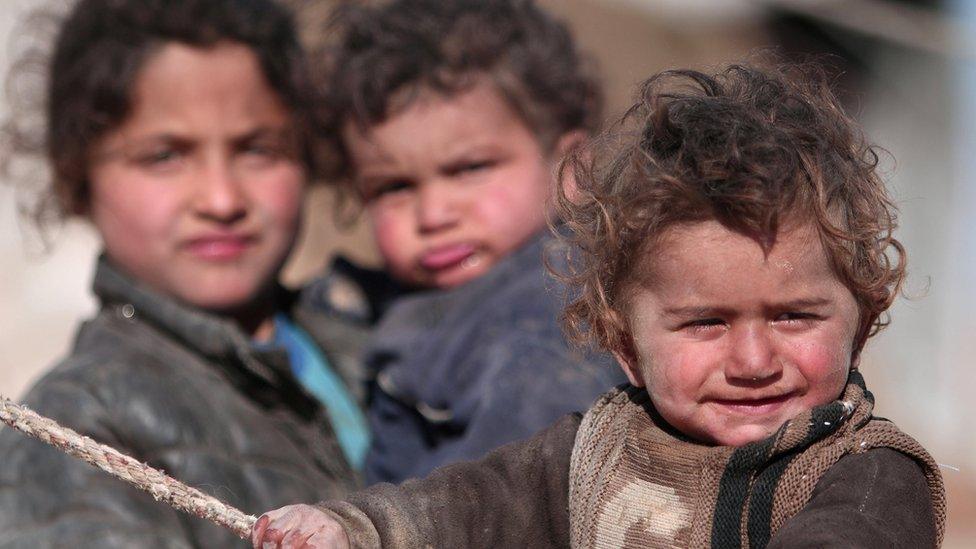Syria conflict: Iran, Russia and Turkey 'to enforce' truce
- Published
- comments

The rebel delegation said it would not sign "any document" at the talks in Astana
Iran, Russia and Turkey say they will jointly enforce a fragile three-week cessation of hostilities in Syria.
The announcement came after two days of peace talks in the Kazakh capital, Astana.
In a joint statement, the three countries said there was no military solution to the Syrian conflict.
It was not clear whether the Syrian government or the opposition backed the communique. Earlier, a rebel spokesman said "no agreements" would be signed.
More than 300,000 people have been killed and 11 million others displaced since the uprising against President Bashar al-Assad began in March 2011.
The "trilateral mechanism" was agreed between Russia and Iran, which back Mr Assad's government, and Turkey, which supports the opposition.
It would "observe and ensure full compliance with the ceasefire, prevent any provocation and determine all modalities", the statement said.
Negotiations are under way in Kazakhstan's capital Astana- but who is and isn't taking part?
Earlier, however, the Guardian reported, external that rebel officials objected to Iran having a role because of its support of militia groups, which they accuse of repeatedly violating the cessation of hostilities.
Government negotiator Bashar Jaafari had accused rebel groups of violating the truce and defending "war crimes" by the allied jihadist group Jabhat Fateh al-Sham, which is excluded from the ceasefire along with so-called Islamic State (IS).

Representatives of the warring parties sat opposite each other at a round table on Monday
The talks in Astana were the first where the opposition delegation was formed exclusively of representatives of armed groups.
Rebel spokesman Yahya al-Aridi had earlier said that his delegation would also push for the lifting of government sieges of opposition-held areas and "goodwill gestures", including the release of political detainees and aid deliveries.
He added that it was hoped the meeting would "contribute" to the UN-brokered negotiations on a political settlement that are due to resume in Geneva next month.
The negotiations in Geneva broke down last April with little progress having been made.

UN has made a fresh appeal for funding to help Syrians
In other developments:
The UN has called for $4.63bn (£3.71bn) in fresh funding to help Syrian refugees and host communities in neighbouring countries. The appeal, made at a conference in Helsinki, is in addition to the $3.4bn estimated by the UN, external to be needed to help 13.5 million people within Syria this year
Turkey says it will not hand over the northern town of al-Bab to Syria's government after IS militants are driven out. Deputy Prime Minister Numan Kurtulmus told state-run news agency Anadolu that the operation was launched to protect Turkey's border. Turkey launched its operation in August. IS-held al-Bab has been under siege since December
Syrian forces and rebels clashed in the Wadi Barada area near Damascus, according to the UK-based monitoring group Syrian Observatory for Human Rights. Wadi Barada contains a major spring, which supplies water to millions of residents in the capital. Government fighters have tried to recapture the area
The jihadist group Jabhat Fateh al-Sham launched an assault and seized some positions from rebel groups in north-western Syria that are attending the Kazakhstan talks, Reuters news agency reports. Diplomats said the move could be aimed at weakening the opposition's bargaining position